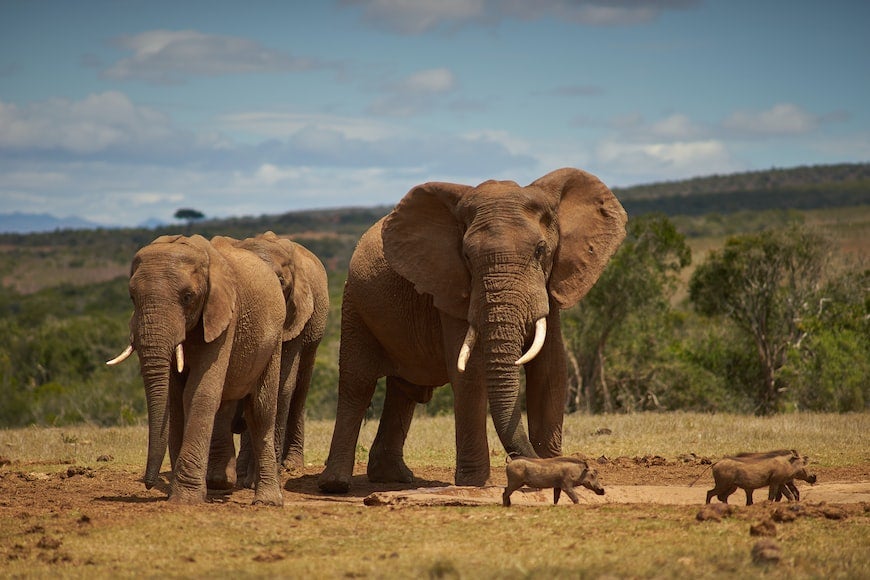Thousands of wild animals in danger as Botswana releases 2023 hunting quota
Second quota after removal of longstanding hunting ban in 2019 includes elephants, leopards

Your support helps us to tell the story
From reproductive rights to climate change to Big Tech, The Independent is on the ground when the story is developing. Whether it's investigating the financials of Elon Musk's pro-Trump PAC or producing our latest documentary, 'The A Word', which shines a light on the American women fighting for reproductive rights, we know how important it is to parse out the facts from the messaging.
At such a critical moment in US history, we need reporters on the ground. Your donation allows us to keep sending journalists to speak to both sides of the story.
The Independent is trusted by Americans across the entire political spectrum. And unlike many other quality news outlets, we choose not to lock Americans out of our reporting and analysis with paywalls. We believe quality journalism should be available to everyone, paid for by those who can afford it.
Your support makes all the difference.Thousands of wild animals have been included in the 2023 hunting list as Botswana releases a hunting quota for the next open season. Elephants will be among the most hunted animals with 336 giants set to come face to face with the hunter.
Leopards are also on the menu with 74 cats staring down the barrel. This follows the Department of Wildlife and National Parks’ (DWNP) release of the Wildlife Hunting Quota 2023.
“Notice is hereby given, for public information, that in pursuance of section 32 (2) of the Wildlife Conservation and National Park Act, the Director, Wildlife and National Parks has determined the wildlife hunting quota for the year PART III: GAME ANIMALS – 2023,” says an official document signed by DWNP Director Dr. Kabelo Senyatso. The quota covers a wide range of species that also includes zebra, buffalo, ostrich, wildebeest, kudu, eland, gemsbok, warthog, baboon, and lechwe.
The Botswana government lifted a long standing ban on hunting in 2019.
“The Ministry of Environment, Natural Resources Conservation and Tourism wishes to inform the public that following extensive consultations with all stakeholders, the Government of Botswana has taken a decision to lift the hunting suspension,” an official statement said in May 2019.
The latest quota is only the second post Covid-19 following the 2021 hunting quota.
The Central Region accounts for most of the elephants this open season with a total quota of 111 elephants included in Citizen Hunting Areas, Community Managed Areas, and Concessions. Ngamiland in northern Botswana accounts for the highest number of leopards with 16, and second highest number of elephants at 93.
“Leopard quota for game ranches – 13 males (to be disposed via raffle) Leopard quota for agricultural extension areas – 10 males (to be disposed via raffle) Elephant quota for agricultural extension areas – 20 males (to be disposed via raffle),” DWNP says in a document seen by this publication.
“The quota allocated to communities must be bought in whole from those communities, and not in lots,” DWNP says. “The Department will recognize valid Agreements between local communities and private operators that were signed prior to the publication of the quota, where such Agreements do not disadvantage communities. Where the Agreements disadvantage communities, the Department reserves the right on the disposal of the quota allocated to the communities.”
The DWNP says all Agreements signed by local communities and private operators after the publication of the quota must be vetted by the Department and the CBNRM office in Gaborone.
“All operators need to have paid for the full quota by 28th February 2023, failing which the offer will be withdrawn. The Department of Wildlife and National Parks reserves the right to review all Agreements proposed after the publication of this quota; and all community quota negotiations must take place in the presence of the District Commissioner’s representative as Technical Advisory Committee Chairperson,” says the document, signed by Director Dr. Senyatso.
Hunting quotas were at the centre of legal battles earlier this year in the Chobe region with allegations of corruption by those in charge of their respective Community Trusts following the release of the 2022 Hunting Quota by the government.
Sunday Standard had in our possession petitions by concerned members of the two hunting areas under Chobe Enclave Conservation Trust (CECT) and Panda, Lesoma, Kazungula (PALEKA) Trust. The petitions were directed at the District Commissioner to intervene. Among the concerns raised by Petitioners was failure by various boards of trustees to consult the communities before contracting safari companies. Local communities in the region stood to miss out on millions over allegations of corruption by those charged with the responsibility to sell the hunting quotas.
This article is reproduced here as part of the African Conservation Journalism Programme, funded in Angola, Botswana, Mozambique, and Zimbabwe by USAID’s VukaNow: Activity. Implemented by the international conservation organization Space for Giants, it aims to expand the reach of conservation and environmental journalism in Africa, and bring more African voices into the international conservation debate. Written articles from the Mozambican and Angolan cohorts are translated from Portuguese. Broadcast stories remain in the original language.
Read the original story here:
Join our commenting forum
Join thought-provoking conversations, follow other Independent readers and see their replies
Comments